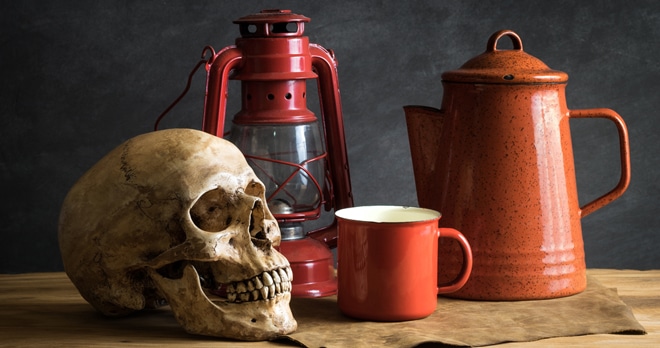Discuss death over tea & cake – the rise of the Death Cafe

Yet the topic of death seems to be coming out of the shadows more recently. There seems to be a changing attitude to the subject. This can be seen in the amount of TV programmes available, the scrutiny and media attention of a high profile death, and now in the types of events you can attend.
A crowdfunding campaign has been launched to open the world's first permanent "Death Cafe" in London. The venue intends to host group discussions covering all aspects of death and dying over tea and cake "with no agenda, objectives, or themes".
The cafe's founder, Jon Underwood, says it's aimed "to increase an awareness of death with a view to helping people make the most of their (finite) lives".
Pop up death cafes of this kind have been held in over 30 different countries worldwide. The permanent cafe would run as a non-profit organisation, funded by a community share offer.
Mr Underwood says there is increased demand for the groups because attitudes to death are changing. "In the last five years there has been a sudden surge of interest in death and dying and this conflicts with past decades when death has been pushed to the sidelines. It was the domain of professionals, like medical professionals and funeral directors, but now people are realising that approach to death is not doing us any favours."
According to Sky News, Mr Underwood opened the first pop up death cafe in 2011 in his house with his mother. Since then, more than 2,000 have been held across Europe, the US, Canada and Asia.
Lucy Phillips regularly attends the Malvern cafe in Worcestershire because the subject matter "fascinates" her. She says: "I always get something out of it so you could say I come for selfish reasons because I always leave having learnt something new."
Ray Bishop has been going to the same one for over two years since his wife died.
"Almost within a week or so I saw an article in one of the local newspapers about the death cafe," he says. "It was a fairly traumatic time and I wondered what it had to offer, and it has offered a lot support... to be with people who are prepared to listen."
Sue Friston runs the Malvern pop up death cafe and says it is often not morbid and allows people to develop their own insight.
"I think the more you become less afraid of death and are willing to talk about it it transforms your life," she says. "You live more consciously and you are more likely to die wise."
Helen Putt, one of the country's few female undertakers, believes the increasing openness about death has been spurred by social media.
"Every part of everyone's life is online now. You can't hide now so when a death does happen you see it all the time. People post memorials, tributes and pages to fundraise."
It's interesting that this is something people are more open to talk about, yet surprisingly only a small amount of young people (30 or younger) have thought about making a Will, and an even smaller number have actually made one.
I find it's much more common for older people to make a Will following an illness or injury, or following the death of a loved one. However, maybe this trend will change, where younger people can think about putting the necessary plans in place and feel more confident talking about the inevitable before it's too late.